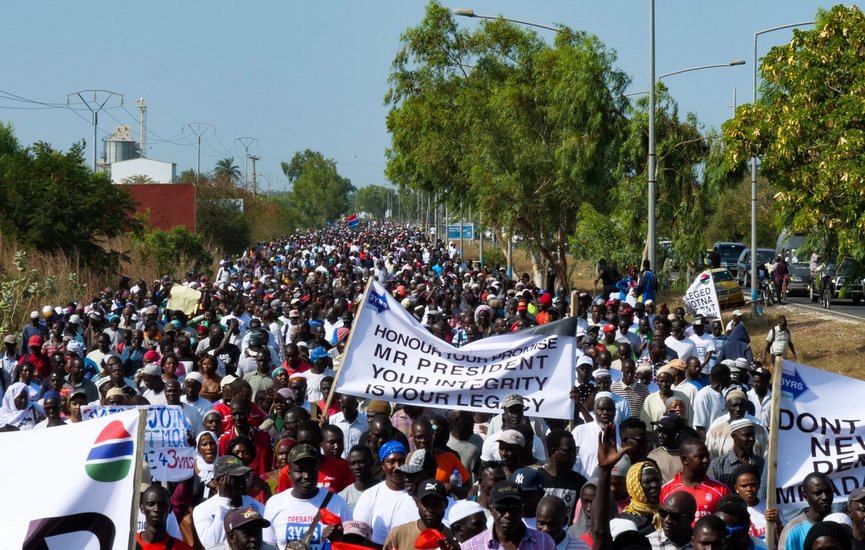Authorities in The Gambia are facing mounting pressure to release a group of peaceful protesters who were arrested during a demonstration outside the Public Utilities Regulatory Authority (PURA) in Serekunda on August 22, 2025. The protest was organized in response to a controversial directive affecting internet costs, and included prominent activists such as journalist Yusef Taylor and rapper Ali “Killa Ace” Cham, both members of the youth-led movement Team Gom Sa Bopa. In total, 23 individuals were detained, sparking widespread concern over the government’s handling of dissent and its commitment to upholding civil liberties.
Reports from rights organizations indicate that several of the detainees were subjected to violent treatment during and after their arrests, with some requiring hospitalization. Tear gas was deployed against supporters gathered outside the court, and four protesters launched hunger strikes while being held at Mile Two prisons. Despite constitutional protections under Section 25 of The Gambia’s 1997 Constitution, which guarantees the right to peaceful assembly and expression, bail applications for the detainees were denied. Their next court hearing is scheduled for September 4, raising urgent questions about due process and judicial independence.
The crackdown has drawn sharp criticism from human rights advocates who argue that the arrests and alleged mistreatment of protesters represent a troubling erosion of democratic norms. The use of force against peaceful demonstrators and the denial of bail appear to contradict The Gambia’s stated commitment to human rights and rule of law. Activists and civil society groups are calling on the government to immediately release the detainees, investigate allegations of abuse, and ensure that citizens can exercise their rights without fear of retaliation.
This incident has reignited debate over the state of freedom of expression in The Gambia, particularly in the context of growing youth activism and digital mobilization. As the country continues its democratic transition, the treatment of protesters will serve as a litmus test for the government’s willingness to protect fundamental freedoms and engage with dissenting voices constructively. The international community and domestic stakeholders alike are watching closely, urging authorities to uphold the principles enshrined in the Constitution and foster a political environment where civic participation is not only tolerated but respected.
